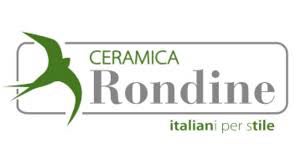 Italcer, the Italian cluster of high-end ceramics producers that Mandarin Capital Partners created with seasoned sector-manager Graziano Verdi, acquired Rondine Group together with Capital Dynamics, that joined Mandarin and its coinvestors Idinvest and HQ Capital in Italcer’s capital (see here a previous post by BeBeez). Italcer issued a 133 million of euros bond that Pemberton subscribed in a deal coordinated by Pemberton’s senior advisor Francesco Di Trapani. Intesa Sanpaolo provided a short-term financing to Italcer. After this acquisition, Italcer will generate sales of 200 million with an ebitda of 35 million.
Italcer, the Italian cluster of high-end ceramics producers that Mandarin Capital Partners created with seasoned sector-manager Graziano Verdi, acquired Rondine Group together with Capital Dynamics, that joined Mandarin and its coinvestors Idinvest and HQ Capital in Italcer’s capital (see here a previous post by BeBeez). Italcer issued a 133 million of euros bond that Pemberton subscribed in a deal coordinated by Pemberton’s senior advisor Francesco Di Trapani. Intesa Sanpaolo provided a short-term financing to Italcer. After this acquisition, Italcer will generate sales of 200 million with an ebitda of 35 million.
AIFI, the Italian association of venture capital and private equity and private debt investors, and Deloitte reported that private debt funds investing in Italy raised 141 million of euros in 1H18 and 1.9 billion since 2013 (see here a previous post by BeBeez). However, a few investors will start soon their fundraising. Fondo Italiano d’Investimento (FII), for example, will launch soon a second private debt funds of funds platforms, said Innocenzo Cipolletta, chairman of AIFI and of FII. Roberto Travaglino, a partner of FII, previously said during an event of BeBeez that the firm’s first fund of funds invested almost the whole of its 400 million of available equity that received from Cdp, Nexi, Intesa Sanpaolo, Credito Valtellinese, Poste Vita, Cnpadc, Eurovita, Intesa Sanpaolo Vita, and pension funds Priamo and Prevaer. Italian domestic investors poured 90% of the resources of Italian focused private debt funds, as AIFI’s general manager Anna Gervasoni previously noted while just the remaining 10% came from foreign investors. In 1H18, private debt players, invested 448 million (+79% YoY), spread over 59 subscriptions (+31%) and 50 target (+56%). International companies invested 84% of the amount over 59% of the transactions. Bonds subscriptions make 52% of deals, while 46% are credits, and 2% hybrid instruments. The transactions’ average tenure is of 5 years, while 85% of the deals’ size is in the region of 10 million of euros for an average 5.5% rate. A 60% of investments involved SMEs with sales of 50 million of euros, and 12% of them has a private equity as shareholder. The amount of SMEs generating sales of above 50 million involved in private debt deals that has a private equity among its shareholders is of 57% ha un private equity. However, the majority of bonds issuance was meant to support the companies’ organic growth or M&A plans rather than leverage buyouts or the refinancing of existing liabilities. On another front, since 2015, investors exited 103 portfolio transactions worth 246 million. In 1H18, investors realised 68 exits totally worth 95 million, but 66% of debt instruments is still in their portfolios.
Quaestio Private Markets Funds European Private Debt, a Luxembourg Sicav Sif for private debt investments that belongs to financial firm Quaesto Capital Management, announced a 623 million of euros closing (see here a previous post by BeBeez). Massimo Marzeglia andGiovanni Boscia are the senior portfolio manager of this private debt fund that set a 6,5% yield target over a 7 years investment time-frame and a biannual flow of coupons for an annual 5% rate. Alessandro Penati and Francesco Ceci are the founder and the ceo of Quaestio Capital Management.
Bcc Banca Patavina will sell a 150 million of euros worth portfolio of bad loans to Hoist Finance and will handle in-house 20 million of problematic credits (see here a previous post by BeBeez). After this sale Banca Patavina will increase its Cet1 to 14%.
Carige’s new ceo Fabio Innocenzi will complete the sale of a portfolio of UTPs worth 380 million of euros to Bain Capital Credit (see here a previous post by BeBeez). Fitch Ratings downgraded the troubled Italian bank to CCC+ from B-. After such a sale, Carige’s amount of problematic credit will be below 4.6 billion, which is the target that the European Central Bank wanted the Italian firm to achieve by end 2018.


